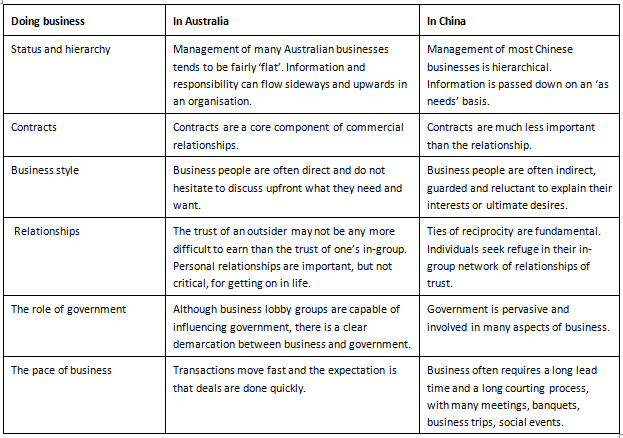National law firm Holding Redlich has appointed Dr Carl Hinze as a senior partner in its corporate and commercial group.
The M&A expert gives the firm a unique opportunity to take advantage of a market on the brink of a boom: Hinze speaks fluent Mandarin, has a PhD in Chinese culture and is a recognised expert in the field of Chinese sociolinguistics and etiquette.
The lawyer recently relocated to Brisbane after having worked in law and investment banking in Shanghai for the past 10 years.
He says his return to Australia and appointment to Holding Redlich coincides with a time where there is an increase in the amount of Chinese investment abroad, particularly in Australasia.
This growth is only set to skyrocket, Hinze says, in light of the fact that the central government in China is poised to strongly urge many domestic enterprises to go abroad in 2015.
He’s hoping to be in a prime position to harness that wave.
“What I see happening is when Chinese companies go abroad there will be more Australian and New Zealand companies doing business with them,” Hinze tells
Australasian Lawyer.
“To do this you have to know more than just NZ and Australian law. My 10 years’ experience allows me to understand that perspective. It’s not just about knowledge of the law – it’s about the cultural sensitivities and nuances that are very important.”
Hinze has been fascinated by Chinese culture and language since he was a teenager, and stumbled into the subjects by accident in high school.
With an older brother having previously studied Japanese, the young Hinze decided to follow suit, only to discover the classes were all full.
“So I was allocated to Mandarin. I remember going home feeling disappointed, and my mother saying ‘you never know, you might like it’,” he laughs. “Funnily enough, it’s had a massive impact on my life.”
Hinze hasn’t stopped studying the language or culture since, and he expects the journey to learning all the tricky intricacies of Mandarin will be a “lifelong” one.
As well as completing a law degree at the
University of Queensland, he also did his Doctor of Philosophy in Chinese Studies there and lectured on the subject, before being given an Australian government scholarship to go to China.
“It was a very steep learning curve – I hadn’t practised law in China before,” he says.
But it was nonetheless invaluable.
Hinze started off working at
Linklaters, before jumping over to international firm Eversheds, and eventually being made partner at Dorsey and Whitney.
As a bonus, he and his team never separated, making the move together each time.
In July, Hinze and his wife decided to move back to Australia with their three children: A six year-old and twin five year-olds.
“Like millions of Chinese, we became very concerned about the state of the environment there,” he says. “There were 35 days last year where we decided not to send our kids to school because the air quality index was too high. It’s just not sustainable.”
The lawyer settled on joining Holding Redlich, a firm he says he was particularly attracted to because of its culture and its strong commitment to excel in areas where Australia-China collaborations are set to grow, such as in investments in agribusiness, commercial property, retail, tourism and infrastructure.
With the slowdown in the Chinese economy domestically, growth there has become limited and local businesses are being forced to look to new markets outside of the Mainland.
Hinze says generally Chinese businesspeople are conservative and want to invest in jurisdictions where there is a great deal of reliability, making Australasia ripe for the picking.
But as well looking to solidify an income stream abroad, wealthy companies in China –predominately property developers – are also hoping to diversify new asset classes.
“We’re already starting to see these sector trends, and I think we’ll see a lot of cross-sector pollination,” Hinze says.
“We’re going to need highly specialised lawyers [for this]. I think there will be a lot of lateral movements as firms look to strengthen and develop these core areas. Firms that do that will benefit, but they’ll have to sharpen the tool kit in areas such as cross-cultural understanding. Part of my role is to educate my partners on how best to do work with and in China.”
To get the ball rolling, Hinze has developed a chart based on his observations of key differences between doing business in Australia and China:


